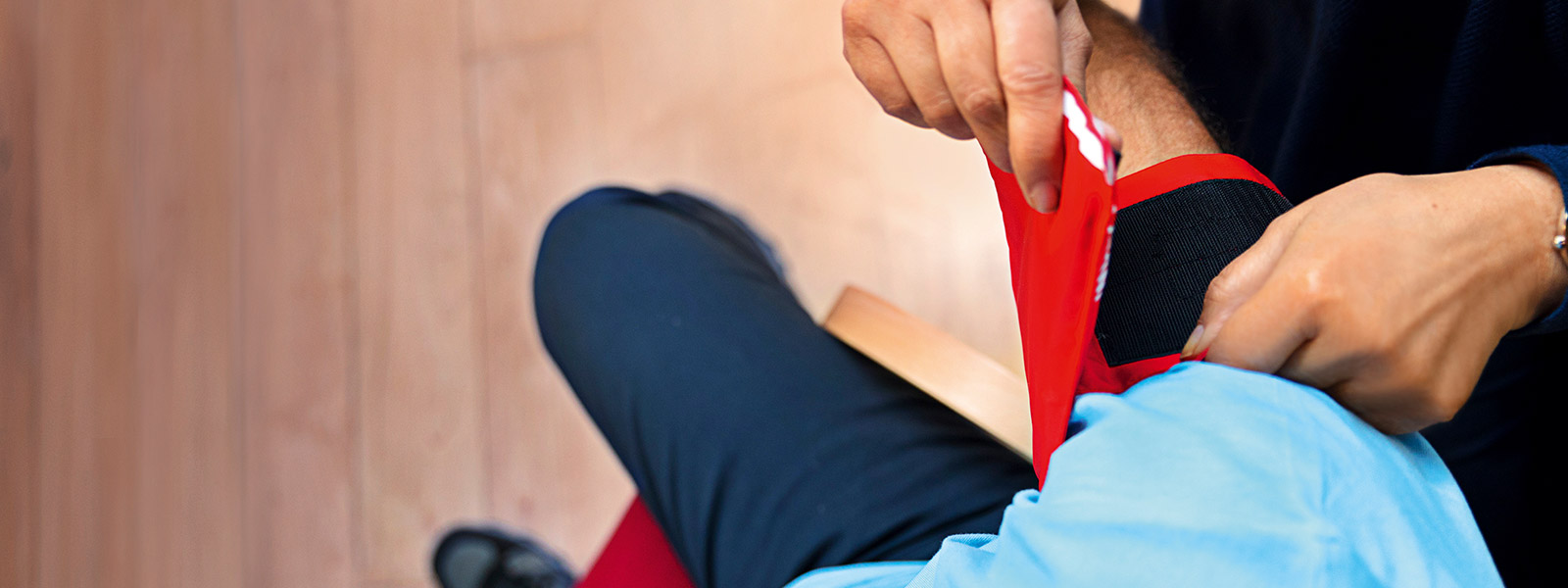When the boat comes in

Our public health bus parked at Ramsgate harbour to reel in local fishermen for vital on-the-spot health checks. Charlotte North spoke to retired fisherman John Nichols about why this service is essential for his community.
For seasoned fisherman John Nichols, one of his worst memories was being mid-channel in the middle of winter, experiencing a heavy gale.
He said: “We were night cod fishing and everything was black. You couldn’t see your hand in front of your face, let alone each other. The boat was tipping vertically with the ice-cold sea coming over the top. I can remember thinking, in that moment - why did I choose this?”
John, 73 and from Broadstairs, has known no other life than that of a fisherman. Now retired and working as the Chairman of the Fisherman’s Association, he spent a childhood coveting the idea of working at sea and adulthood battling the effects it had on his health.
He said: “Believe it or not, I was five years-old when I started on boats. I used to jump on my tricycle after school with my little mate and pedal frantically to Broadstairs harbour. The boatmen would get us doing odd jobs. They’d say ‘Ill show you a shilling’. Of course, we were never paid that shilling!
“To five-year-old me, it was the stuff of storybooks: the swell of the ocean and the big vessels bobbing along. After school, I trained to build wooden ships and eventually, became a fisherman. It felt like what I was made to do.”
We met John on an overcast day at Ramsgate harbour where our public health bus had parked up to offer fisherman on-the-spot blood pressure, blood sugar and diabetes checks with instant results.
Studies have shown those in the fishing industry have among the poorest health of all workers in England and Wales, with low life expectancy and high rates of major diseases. Our mobile service hopes to help tackle this issue.
John highlighted: “For the average person working in an office or factory, they’re in a controlled environment and they get breaks. A fisherman goes to sea for 12 hours, the floor is constantly moving, left to right, up and down. Every two minutes, cold water is thrown over you. The conditions are extreme and the hours are long.

“It’s also dangerous. I know of four men who have died at sea after accidents, like getting caught in netting and many others to have nasty life-limiting injuries.”
While he relished his career, fishing took a toll on John’s health. He has high cholesterol and type two diabetes and came down to the bus to check his blood pressure – which was thankfully in the healthy range.
“I had a heart attack five years ago, two years later I was aboard a cruise ship and suffered massive internal bleeding. They had to divert the ship and get me to hospital in north Spain. Sometimes it feels like all my milestones – good and bad – are on the ocean.”
John was never a drinker or smoker, like many fishermen are according to statistics, but believes that a mix of high-stress working conditions and erratic eating led to his illnesses.
He explains: “When fishing was good, I’d do 20 hours fishing, go home to shower, snatch sleep for half an hour and get back out on the boat.
“We’d grab bacon butties, portable snacks - never proper meals. One trick was to fill up a flask of tea with two to three teaspoons of sugary condensed milk. I’ve never been overweight, but I still got diabetes.”
John thinks the health crisis we are seeing in the fishing community is also stress associated.
He said: “They’re going out alone as they can’t afford not to. That’s a big safety risk and means long shifts, in awful conditions. Some fishermen are actually living on their boat. They’ve lost everything. At times, they’ll catch just enough to cover their fuel.”
John spent time drumming up friends in the industry to get on board the public health bus, feeling grateful many took the time to pop along.
He said: “The service here is potentially lifesaving. One local fisherman had a sky-high blood pressure reading and they considering calling an ambulance for him. He is in his 60s, he doesn’t eat properly or drink water at all during his shifts. He’s often stressed.
“Others have physical issues that come with being too old for a manual job. Arthritis, bad backs and dodgy feet. Most fishermen are over 50 these days, what man in this stage of life can manage heavy hauling and little sleep and rest?”
John added: “The community is also secretive. They don’t want to ask for help. There’s also an element of burying their heads as if you’re too ill to get out on the boat – how will you support your family?”
The drop-in health checks service is essential to a community working shifts and unusual hours. The feast or famine nature of fishing means going out at the drop of a hat when the weather is good. This means keeping to scheduled appointments can be impossible. Which is why KCHFT’s public health teams are finding new ways of taking healthcare to the people who need it most – like trips to the harbour.
John agreed: “Bringing the bus to the docks isn’t just accessible, it means we have to face up to our health.”
Find a health check event near you: www.kentcht.nhs.uk/nhs-health-checks/




